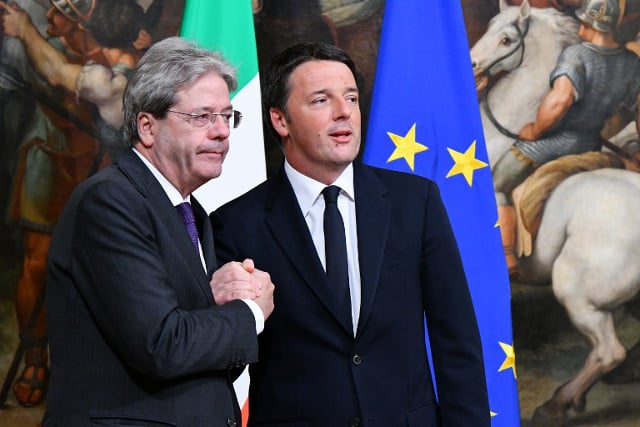Renzi, who stepped down in December after losing a key referendum, said he would run to win back his post as party secretary, which would put him in pole position to become prime minister once more should the PD win approaching national elections.
The showdown with his many enemies looked set to be fierce; rebels on the far-left have been threatening to split off, with a potential fallout for the government and PD Prime Minister Paolo Gentiloni.
Renzi pointed the finger squarely at the rebels, accusing them of having attacked him at every turn during his premiership and of trying to blackmail him into quitting as party head as the only way to prevent the threatened split.
“Schism is one of the worst words, only one is worse and that's the word blackmail. It is unacceptable for a party to be blocked by the diktat of the minority wing,” he said.
“You have the right to defeat us, not eliminate us. That's the heart of a democracy,” he added.
The congress to elect the new PD party secretary will be held in June.
'Heading for a crash'
Renzi had been calling for an early general election, but the rebels say they want Gentiloni's government to carry on until the natural end of the legislature early next year.
Thoughts of going to the national polls this summer have now been put on hold, but if Renzi wins the party secretary post in June he may push for a vote in September.
Italy's biggest opposition party, the Five Stars Movement, is also keen for early elections, as is the anti-immigrant Northern League, while the centre-right wants to wait.
Renzi, 42, called for the party to “move forwards united,” saying he and the others in the majority asked “with our hearts in our hands” for the rebels to stay.
But former PD leader Pier Luigi Bersani, who still has core support among traditional PD party voters, dismissed his appeal.
“We are at very delicate point. There are those who think we are heading for a crash which will hit not just the PD but Italy,” he said.
“We are not saying we are determined to send Renzi packing, we are saying we want to be able to discuss an urgent change of direction,” he added.
Bersani blamed Renzi for “putting up a wall” and feared the run-up to the congress the minority's concerns would “not be open to discussion”.
'Unwilling ally'
Political columnist Massimo Franco, of Italy's best-selling Corriere della Sera daily, said the fault did indeed lie with the former mayor of Florence.
He described Renzi as a “perhaps unwilling ally” of those behind the would-be split because of his “inability to change his tune” following the referendum defeat, which saw him resign as PM but act as if his quick return to power was a given, despite the far-left's grumblings.
With the rebels supporting Gentiloni, and Renzi champing at the bit for elections, “paradoxically the strongest defenders of stability are the schismatics,” he said.
Renzi was accused of failing to reboot the country's flagging economy – which has barely grown since 2000 – or tackle the jobless rate, which had hovered around 11.5 percent for over a year when he quit in December.
A slight dip in the youth unemployment rate to 36.4 percent – its lowest rate since October 2012 – failed to mollify the disaffected.
By Ella Ide



 Please whitelist us to continue reading.
Please whitelist us to continue reading.
Member comments